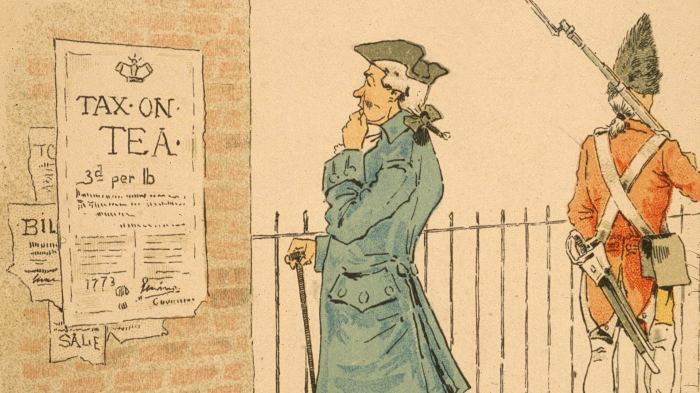The stamp act crisis subsided largely because the – The Stamp Act Crisis subsided largely because of a combination of political pressure, economic impact, diplomatic negotiations, and changing British policy. Colonial protests and boycotts, the Stamp Act Congress and its Declaration of Rights and Grievances, and the economic consequences of the Stamp Act on colonial trade and commerce all played a role in pressuring Parliament to repeal the Act.
Benjamin Franklin and other colonial agents also played a significant role in negotiating with Parliament for the repeal of the Stamp Act. They used diplomatic strategies to influence British policymakers and helped to shape British policy on the issue.
The Stamp Act Crisis: Political Pressure: The Stamp Act Crisis Subsided Largely Because The

The Stamp Act ignited widespread protests and boycotts in the American colonies. Colonial leaders organized mass meetings, formed committees of correspondence, and published fiery pamphlets condemning the Act as a violation of their rights as British subjects. The Stamp Act Congress, held in October 1765, issued a Declaration of Rights and Grievances that asserted the colonists’ right to self-taxation and their opposition to the Act.
Colonial Protests and Boycotts
- Public demonstrations and protests, including the burning of effigies and the tarring and feathering of stamp collectors.
- Boycott of British goods, leading to a sharp decline in imports from Great Britain.
- Formation of “Sons of Liberty” groups to coordinate resistance and enforce the boycott.
The Stamp Act Crisis: Economic Impact

The Stamp Act had a significant impact on colonial trade and commerce. The boycott of British goods led to a decline in imports, while the Act itself imposed a heavy burden on colonial businesses and individuals who relied on printed materials.
The economic consequences weakened support for the Stamp Act and contributed to its eventual repeal.
Economic Consequences
- Decline in imports from Great Britain, leading to a loss of revenue for British merchants.
- Increased smuggling of goods to avoid paying the stamp duty.
- Rise of domestic manufacturing to replace imported goods.
The Stamp Act Crisis: Diplomatic Negotiations

Colonial agents, led by Benjamin Franklin, played a crucial role in negotiating with Parliament for the repeal of the Stamp Act. Franklin presented a persuasive case against the Act, arguing that it violated the colonists’ rights and was economically damaging to both Britain and the colonies.
Franklin’s diplomatic skills and his connections with influential British politicians helped sway public opinion and influence the decision-making process.
Franklin’s Diplomatic Strategies
- Presenting a petition to Parliament that Artikeld the colonists’ grievances and requested the repeal of the Act.
- Lobbying individual members of Parliament and presenting evidence of the Act’s negative impact.
- Appealing to the economic interests of British merchants who were losing revenue due to the boycott.
The Stamp Act Crisis: Changing British Policy

The Stamp Act crisis had a profound impact on British policy towards the American colonies. The economic consequences, political pressure, and diplomatic negotiations forced the British government to reconsider its approach. The repeal of the Stamp Act marked a shift in British policy, leading to a period of conciliation and a temporary easing of tensions between Britain and the colonies.
Factors Influencing British Policy, The stamp act crisis subsided largely because the
- Economic considerations, as the boycott of British goods threatened the British economy.
- Political pressure, as colonial protests and resistance grew more widespread and vocal.
- Diplomatic negotiations, as Franklin and other colonial agents effectively presented the colonists’ case to Parliament.
Essential Questionnaire
What were the main causes of the Stamp Act Crisis?
The main causes of the Stamp Act Crisis were the political pressure exerted by the American colonists, the economic impact of the Act on colonial trade and commerce, and the diplomatic negotiations between the colonists and the British government.
What was the significance of the Stamp Act Congress?
The Stamp Act Congress was a meeting of delegates from nine colonies that was held in New York City in October 1765. The Congress issued a Declaration of Rights and Grievances that asserted the colonists’ right to self-government and their opposition to the Stamp Act.
What was the role of Benjamin Franklin in the Stamp Act Crisis?
Benjamin Franklin was a colonial agent who played a significant role in negotiating with Parliament for the repeal of the Stamp Act. He used his diplomatic skills to influence British policymakers and helped to shape British policy on the issue.